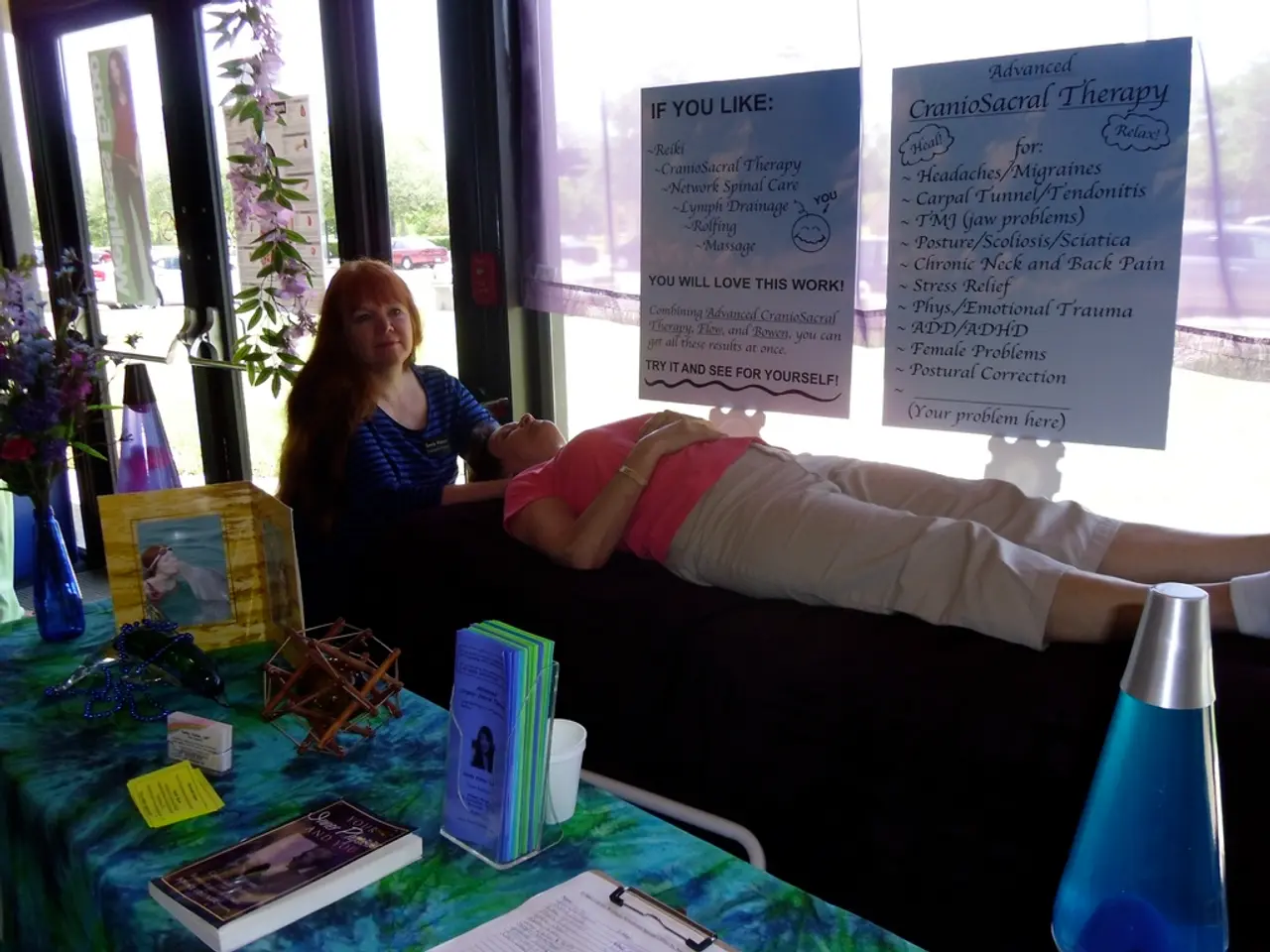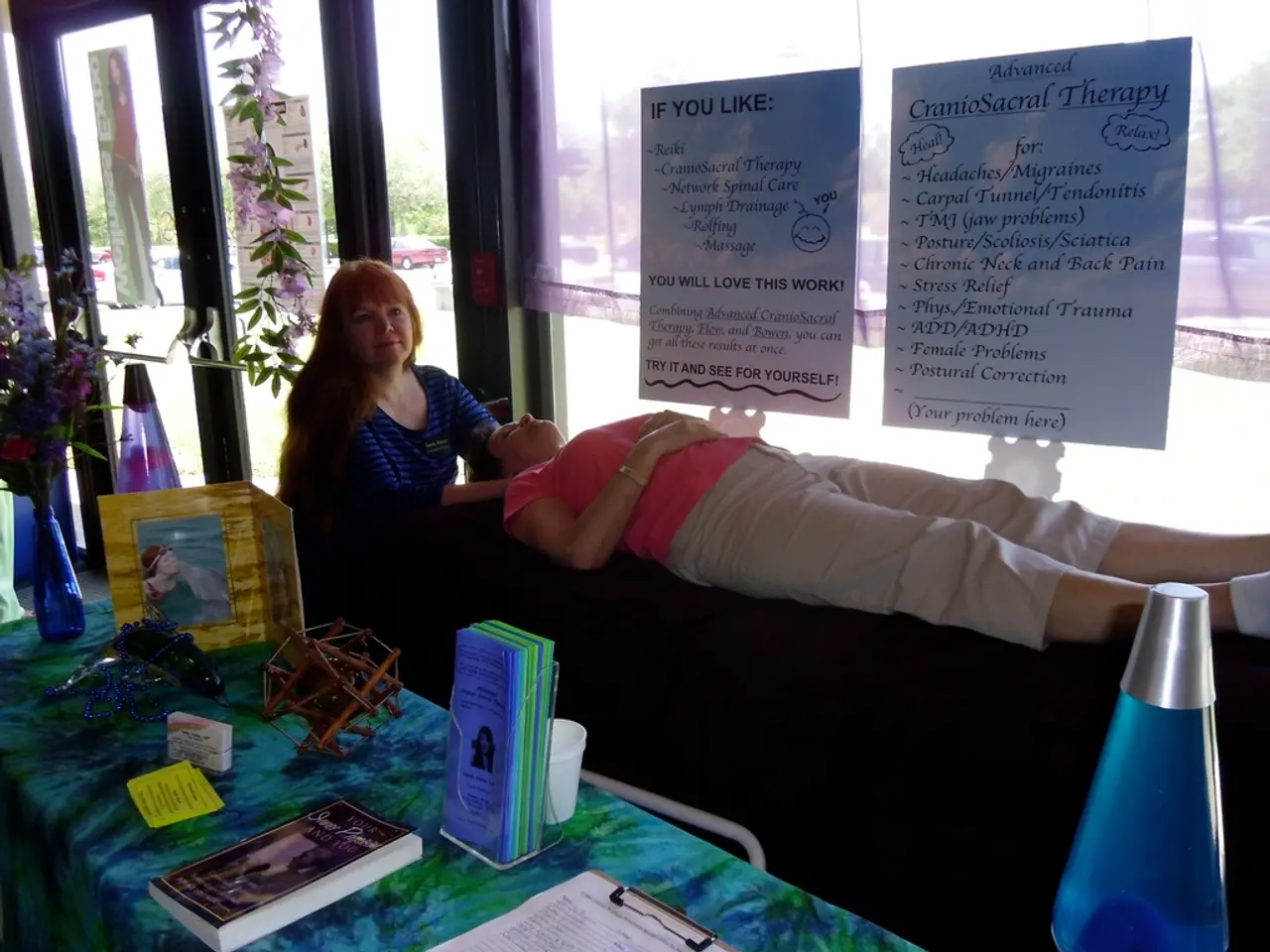Exploring the Intricacies of Post-Traumatic Stress Syndrome
Post-traumatic stress disorder (PTSD) is an anxiety disorder that can arise from experiencing extremely stressful, frightening, or distressing events. Complex PTSD (C-PTSD), a subtype of PTSD, encompasses a multidimensional impact on mental, physical, and relational health.
C-PTSD symptoms are diverse and can be categorised into psychological, physical, and interpersonal impacts. People with C-PTSD often experience persistent feelings of shame, guilt, worthlessness, and betrayal. Difficulties with emotional regulation such as intense emotions and self-harm behaviours are common, as is chronic hypervigilance, irritability, and anxiety. Fragmented memories and difficulties trusting others or forming secure relationships are also prevalent.
Physical health issues such as chronic pain, digestive problems, muscle tension, elevated heart rate and blood pressure, insomnia, and fatigue are also associated with C-PTSD. Interpersonal difficulties, including struggles with trust, social withdrawal, and alienation, often lead to problems in intimate relationships and social anxiety.
Treating C-PTSD requires a multifaceted approach tailored to the complexity of the condition. Trauma-focused psychotherapies like Cognitive Behavioural Therapy (CBT), prolonged exposure therapy, and cognitive processing therapy are frontline evidence-based psychotherapies effective for PTSD symptoms and relevant to C-PTSD.
Emotional regulation and interpersonal work are essential in treating C-PTSD. Therapy addressing emotional regulation skills, rebuilding self-esteem and self-efficacy, and relational work to foster secure attachments are crucial. Somatic and body-centered therapies help restore mind-body connection, addressing physical symptoms and increasing bodily awareness and regulation.
Pharmacological treatments, such as Selective Serotonin Reuptake Inhibitors (SSRIs) and Serotonin-Norepinephrine Reuptake Inhibitors (SNRIs), are commonly used, with some symptom-specific medications like prazosin prescribed for sleep disturbances. Complementary therapies like yoga, acupuncture, and animal-assisted therapy can provide additional support to traditional treatments.
Healing from C-PTSD is a gradual, empowering process aimed at restoring safety, trust, emotional balance, and identity integration. A personalised, compassionate approach incorporating multiple therapeutic modalities is crucial to improve long-term functioning and quality of life.
PTSD can affect individuals of any age, including combat veterans, victims of physical or sexual assault, accident survivors, disaster victims, terror attack survivors, or others who have undergone significant traumatic events. Substance use, including alcohol and drugs, can increase the risk of developing PTSD. PTSD is categorised as an anxiety disorder, not a disease.
Individual differences in brain response to stress and trauma can influence susceptibility to PTSD. Genetic predispositions and variations in neurotransmitter function may play a role in shaping an individual's response to traumatic experiences. Prazosin, a medication, may be used to address nightmares and improve sleep quality in individuals with PTSD.
Supporting a friend or relative with PTSD involves educating oneself, encouraging professional help, being patient, active listening, respecting boundaries, offering practical assistance, and being understanding. Treating PTSD often involves a combination of psychotherapy, medication, and self-help strategies.
In conclusion, understanding and addressing C-PTSD requires a comprehensive approach that acknowledges its multidimensional impact and incorporates a variety of therapeutic modalities. With the right support and treatment, individuals with C-PTSD can work towards healing and reclaiming their lives.
[1] Herman, J. L. (1992). Trauma and recovery: The aftermath of violence—from domestic abuse to political terror. BasicBooks.
[2] van der Kolk, B. A. (2014). The body keeps the score: Brain, mind, and body in the healing of trauma. Viking.
[3] Steele, K., & van der Hart, O. (2015). Complex PTSD: From surviving to thriving: A clinician's guide. W. W. Norton & Company.
[4] National Center for PTSD. (2021). Complex PTSD. Retrieved from https://www.ptsd.va.gov/professional/pages/complex-ptsd.asp
[5] Kessler, R. C., Sonnega, A., Bromet, E., Hughes, M., & Nelson, C. B. (1995). Posttraumatic stress disorder in the National Comorbidity Survey. Archives of General Psychiatry, 52(12), 1048–1060.
- C-PTSD's multidimensional impact includes emotional well-being, mental health, mindset, stress management, resilience, and self-help, as it affects not only mental health but also physical health and interpersonal relationships.
- Emotional regulation skills, rebuilding self-esteem and self-efficacy, and relational work are crucial in treating C-PTSD, working towards emotional balance and secure attachments.
- Mindfulness, focus, and emotional regulation techniques can be beneficial in managing symptoms and improving overall well-being for individuals with C-PTSD.
- Science, particularly in the health-and-wellness and mental-health sectors, continues to explore the causes and treatments for PTSD and C-PTSD, with studies showing that SSRIs, SNRIs, and medications like prazosin can help manage symptoms.
- When supporting a friend or relative with PTSD, it's essential to educate oneself, encourage professional help, practice active listening, respect boundaries, offer practical assistance, and provide understanding.
- Treating PTSD often involves a combination of psychotherapy, medication, and self-help strategies, as well as complementary therapies like yoga, acupuncture, and animal-assisted therapy.
- Understanding and addressing C-PTSD requires a comprehensive approach that incorporates a variety of therapeutic modalities and acknowledges its complex nature, leading to improved long-term functioning and quality of life.




